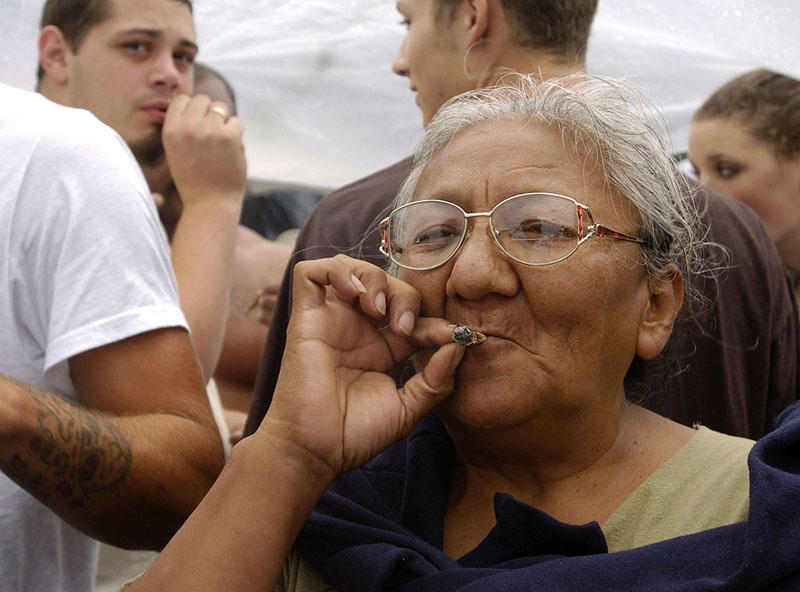Older Canadians will be more likely to use marijuana after legalization, as it becomes easier to buy and more respectable, doctors say.

But a Kingston, Ont. doctor who teaches geriatric medicine says he would be “cautious” while advising elderly patients who want to try recreational pot.
“I’d be concerned about the effect on cognition and mobility,” says Christopher Frank of the Queen’s University medical school. “Anything that has the potential to impair people — if it befuddles you, then you’re more likely to have a trip or stumble and a fall.”
“Anything that’s going to increase the risk of falls, increase the risk of confusion, should be viewed with great caution, whether that’s a prescribed medication or a substance that’s recreational.”
Frank would also be concerned about interaction with other medications, he says.
Last week, the federal government unveiled some details of its marijuana legalization package, which it hopes will become law by July of 2018. When there will be a fully functioning retail system for selling pot is less clear, and to a large extent, up to the provinces.
READ: Ottawa expects 600,000 more people to smoke pot after it’s legalized
As a group, polls show that older Canadians are more negative about marijuana than the national average — more likely to oppose legalization, less likely to say they will try pot when it’s legal, and more likely to favour restrictive ways of selling it after it’s legal.
But in both Canada and the United States, more and more older adults are using marijuana in some form — the percentage of Ontarians over 50 who used pot in the past year nearly tripled over the last 10 years, and has risen fivefold since 1977.
American data breaks out the 50-to-65 and 65+ age groups; the 65+ had lower rates of marijuana consumption, but on the other hand, use by that group had risen two and a half times over an eight-year period.
“A part of the population that has had it as much more of daily life will be entering the senior years,” Frank says. “And easier access would be much more relevant to a senior. Teenagers say, ‘We’ll get it from wherever — having ready access is not an issue for us.’ But for many seniors, being able to go to the shop will make a huge difference, versus having to look for somebody that knows where to get it.”
READ: Legal medical marijuana leads to big drop in opioid-related hospital visits: study
Recreational legalization will make more seniors open to medical marijuana, predicts Hamilton, Ont. doctor Ira Price, who teaches at McMaster University and also runs a medical cannabis clinic.
“I see it in my clinic already — many of my population are over the age of 65. I have a 93-year-old patient using cannabis.”
“The barriers, I’m hoping, will decrease, and the stigmatization will decrease, which will allow an opportunity for those who are over the age of 65 to experience, or explore a medicine that doesn’t have the side effects that they were always told were bad for you.”
Cannabis can help seniors stop using more dangerous drugs, like opioids, Price says.
READ: Medical pot for chronic pain appears safe: study
A U.S. study last year found that doctors wrote fewer prescriptions for painkillers for patients who had access to medical marijuana.
The number of Canadians authorized to use medical marijuana is around 130,000, but a Health Canada spokesperson could not provide an age breakdown.
READ: Number of medical marijuana users soars across Canada, now almost 130K


Comments